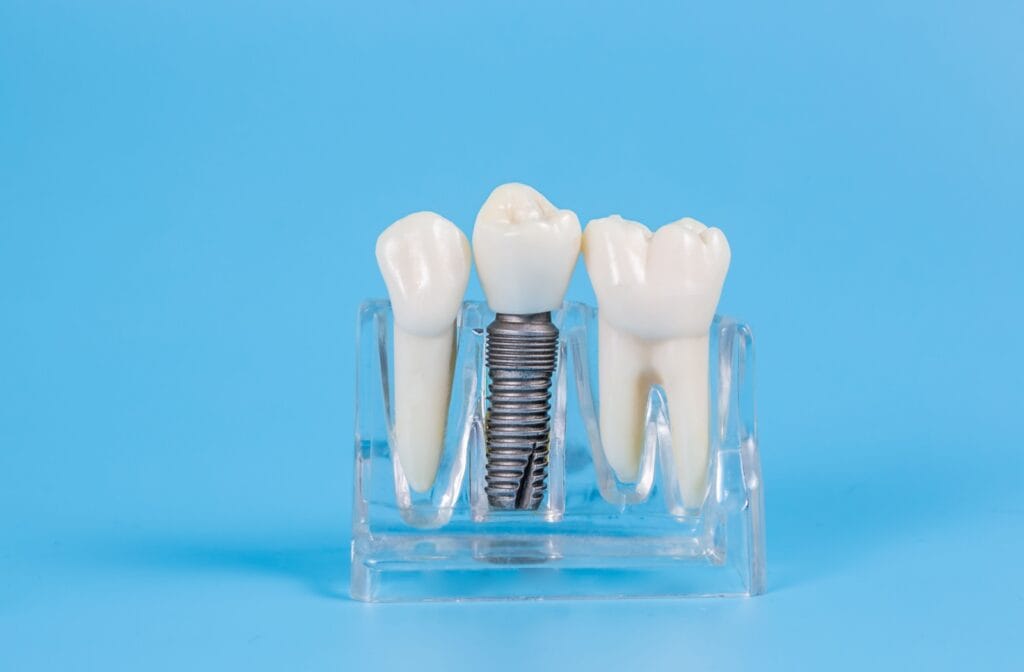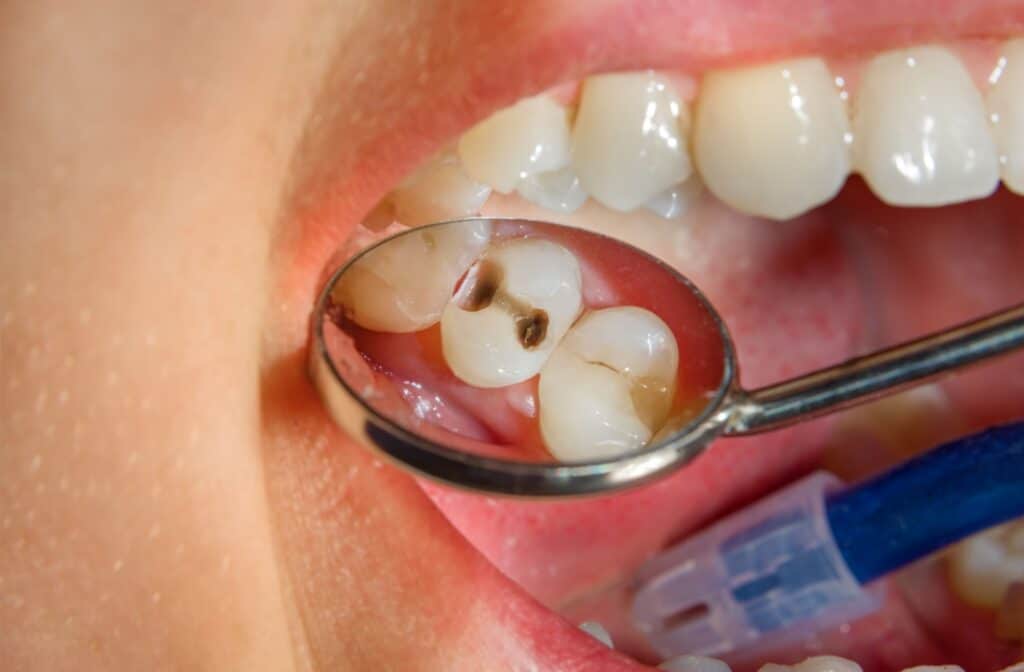Do Dental Implants Get Cavities?
Dental implants are made from durable materials like titanium and ceramic, which are not susceptible to decay.
This means that dental implants cannot develop cavities like natural teeth can. However, this does not mean that you can neglect your oral hygiene. Bacteria and plaque can still build up around the implant, leading to other issues that can compromise the implant’s success.
If you have dental implants, it is important to continue taking care of your oral health through routine cleanings and dental exams.
What are Dental Implants?
Dental implants provide a durable solution for missing teeth, seamlessly blending in with your natural teeth. These titanium-made metal cylinders can restore your smile and support the structure of your mouth and face.
Surgically installed into the jawbone where teeth are absent, these implants mimic the function of natural roots, helping to improve stability and functionality akin to your original teeth.
The Importance of Caring for Your Dental Implants
While dental implants themselves cannot get cavities, the surrounding gum tissue and bone are still at risk if proper care is not taken.
Neglecting your dental implants can lead to:
- Gum disease: Just like with natural teeth, poor oral hygiene can cause gum disease around the implant, leading to inflammation, bleeding, and discomfort.
- Peri-implantitis: This is a condition similar to gum disease but specific to dental implants. It involves inflammation around the implant and can lead to bone loss if left untreated.
- Bone loss: If the surrounding bone becomes infected or weakened, it can compromise the stability of the dental implant.
A Good Oral Health Routine for Those with Dental Implants
Maintaining a good oral health routine can improve the longevity of your dental implants.
Daily Brushing and Flossing
Brushing twice a day with a soft-bristled toothbrush and non-abrasive toothpaste helps remove plaque and bacteria. Flossing daily is also essential to clean between the teeth and around the implant.
Using Antimicrobial Mouthwash
Rinsing with an antimicrobial mouthwash can help reduce bacteria in the mouth, providing an extra layer of protection against gum disease and peri-implantitis.
Regular Dental Checkups
Routine dental visits allow your dentist to monitor the health of your dental implants and detect any potential issues early on. Professional cleanings also help remove plaque and tartar that regular brushing and flossing might miss.

Other Ways Dental Implants Can Be Damaged
While dental implants are highly durable, they are not indestructible.
Here are some other factors that can damage your dental implants:
- Physical trauma—Accidents, sports injuries, or even biting down on hard objects can cause damage to the implant or the surrounding bone.
- Poor oral hygiene—Neglecting your oral hygiene can lead to gum disease and bone loss, which can compromise the stability of the implant.
- Smoking—Smoking can impair healing and increase the risk of complications, including peri-implantitis and implant failure.
The Role of Routine Cleanings and Dental Exams
Regular dental cleanings and exams are essential for maintaining the health of your dental implants. These appointments allow your dentist to:
- Check for signs of gum disease or peri-implantitis.
- Clean hard-to-reach areas to prevent plaque buildup.
- Determine if the implant is functioning correctly and is free from damage.
Preserving Your Oral Health
Dental implants offer a solution for replacing missing teeth and improving your smile. While they do not get cavities, it is crucial to maintain excellent oral hygiene to prevent other issues that can affect the health of your implants.
By following a good oral health routine, attending regular dental checkups, and being mindful of factors that can cause damage, you can enjoy the benefits of your dental implants for years to come.
If you have any questions about dental implants or would like to schedule a consultation, contact South Ancaster Family Dental today. Our team is here to help you achieve oral wellness.

